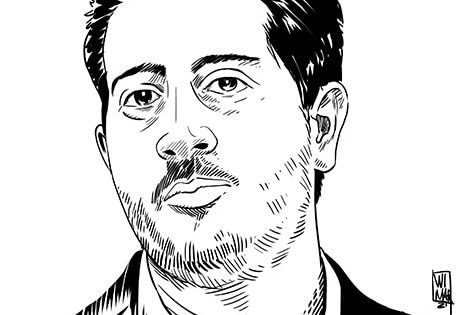(CPJ/IFEX) – In a 2 April 2003 letter to Cuban President Fidel Castro, CPJ strongly condemned the Cuban government’s latest crackdown on the independent press, during which 27 journalists have been detained and await prosecution. The timing of these actions, wrote CPJ, suggests that the Cuban government has taken advantage of the fact that the […]
(CPJ/IFEX) – In a 2 April 2003 letter to Cuban President Fidel Castro, CPJ strongly condemned the Cuban government’s latest crackdown on the independent press, during which 27 journalists have been detained and await prosecution. The timing of these actions, wrote CPJ, suggests that the Cuban government has taken advantage of the fact that the world’s attention is focused on the U.S.-led war against Iraq.
Police began arresting the journalists on 18 March, raiding and searching their homes, confiscating books, typewriters, research materials, cameras, computers, printers, and fax machines. Officers also took books of poetry, family pictures, and medicine from some journalists.
As of the week of 31 March, independent journalists Jorge Olivera, Ricardo González Alfonso, Raúl Rivero, José Luis García Paneque, Omar Rodríguez Saludes, Pedro Argüelles Morán, Edel José García, José Gabriel Ramon Castillo, Julio César Gálvez, Víctor Rolando Arroyo, Manuel Vázquez Portal, Héctor Maseda, Oscar Espinosa Chepe, Adolfo Fernández Saínz, Mario Enrique Mayo, Fabio Prieto Llorente, Pablo Pacheco, Normando Hernández, Carmelo Díaz Fernández, Miguel Galván, Léster Luis González Penton, Alejandro González Raga, Juan Carlos Herrera, José Ubaldo Izquierdo, Mijaíl Barzaga Lugo, Omar Ruiz, Iván Hernández Carrillo, and Alfredo Pulido are imprisoned at jails in the State Security Department. Two other journalists, Roberto García Cabrejas and Adela Soto Álvarez, have been placed under house arrest.
The week of 24 March, relatives of detained journalists were allowed to visit them briefly, and some were told they could only speak about family matters. In most cases, officials were present during the visits.
According to CPJ sources, most journalists will be tried for violating Law 88 for the Protection of Cuba’s National Independence and Economy, which imposes 20 years in prison for anyone convicted of “supporting, facilitating or collaborating with the objectives of the Helms-Burton Law [legislation that tightened the U.S. economic embargo on Cuba], the embargo, and the economic war against our people, which are aimed at ruining internal order, destabilizing the country and liquidating the socialist state and Cuba’s independence.”
Other journalists may also be tried for violating Article 91 of the Penal Code, which establishes 10 to 20 years in prison or death for those who act against “the independence or the territorial integrity of the State.”
However, sources close to the journalists told CPJ that at least three of the 27 journalists could face life terms. Others face prison terms ranging from 15 to 30 years.
Cuban authorities routinely accuse political dissidents and independent journalists of being “counterrevolutionaries” at the service of the United States. The 19 March edition of the Cuban Communist Party daily newspaper, “Granma”, contained a statement linking the detainees to U.S.-sponsored “conspiratorial activities.” However, CPJ believes that these journalists have been imprisoned solely for exercising their right to freedom of expression as guaranteed by the Universal Declaration of Human Rights.
Recommended Action
Send appeals to the president:
– urging him to release all the detained journalists immediately and unconditionally and to ensure that their confiscated equipment and materials are returned to them
– calling on the Cuban government to respect international guarantees for freedom of expression and cease harassing the independent press
Appeals To
His Excellency Fidel Castro Ruz
President of Cuba
C/o Cuban Mission to the United Nations
New York, NY 10016-2606
Fax: +212 779 1697
Please copy appeals to the source if possible.


